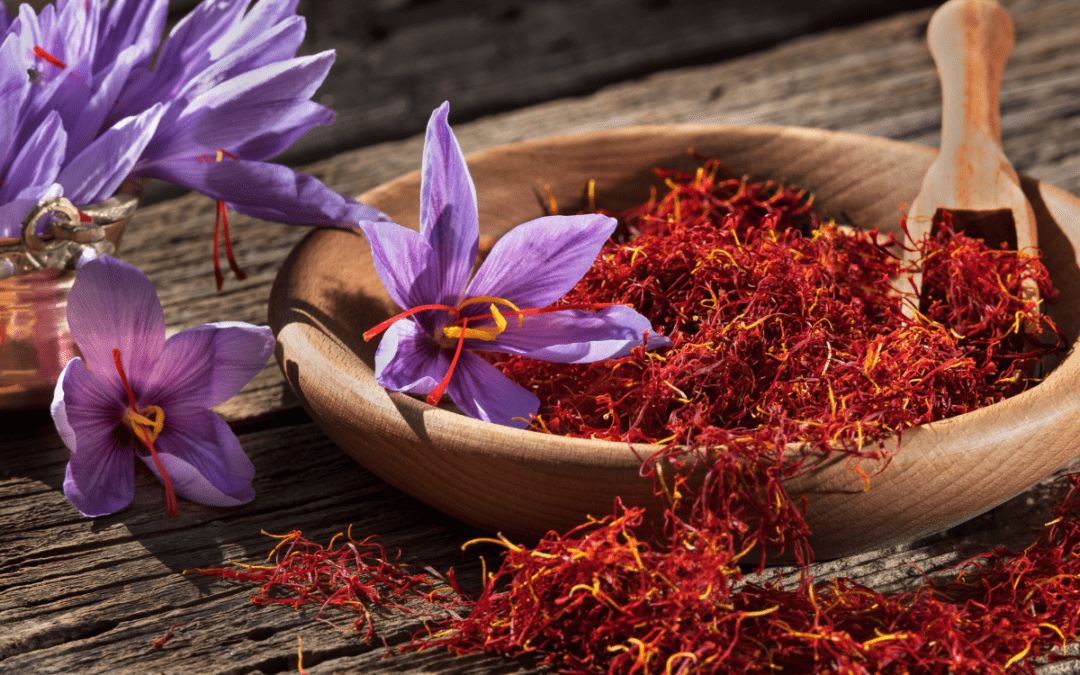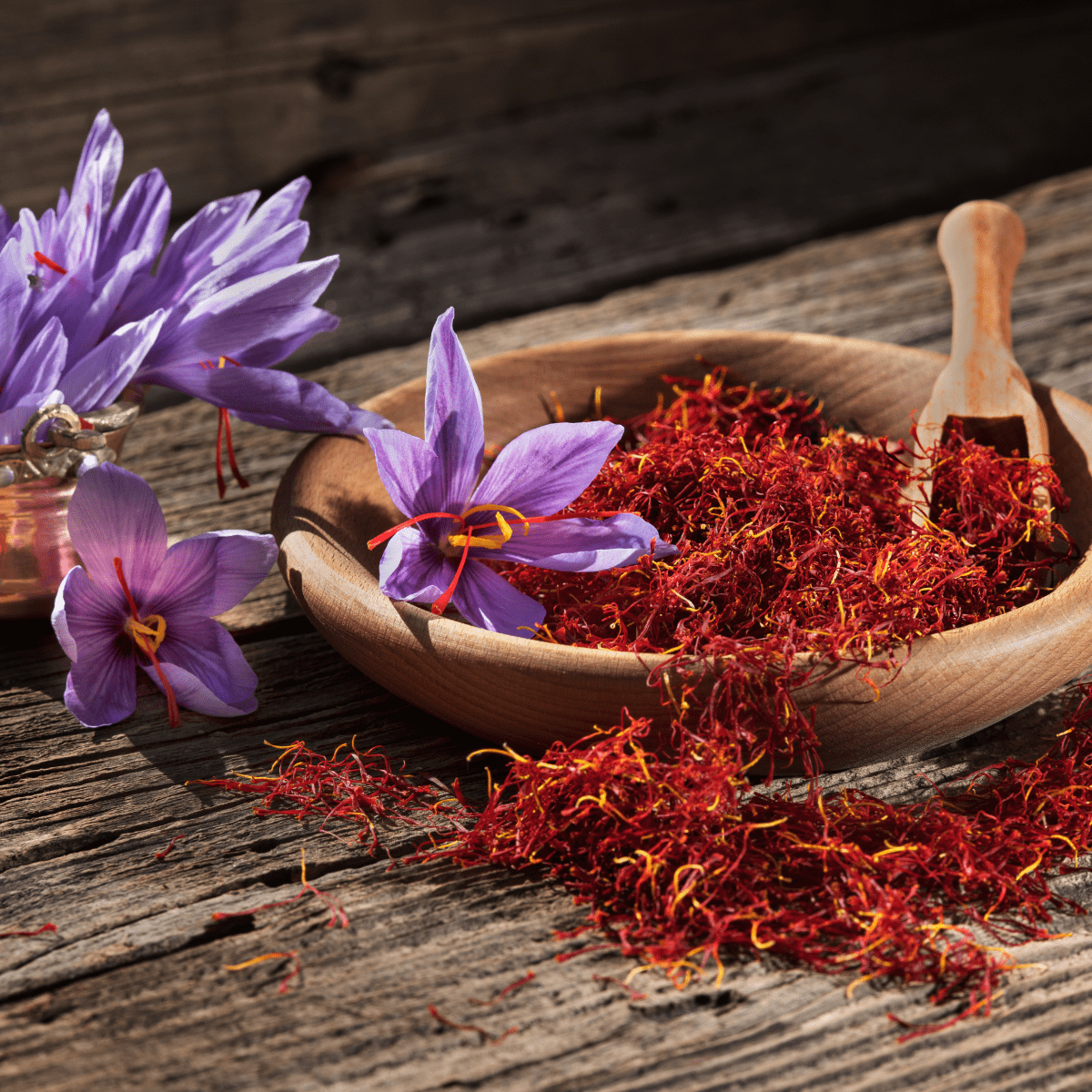Saffron the Super Spice
I’ve always been interested in the use of herbs for health but more recently I’ve been learning more about specifically the use of herbs for menopause. Saffron is a vibrant orange-red spice derived from the Crocus sativus flower and is used both for its culinary uses in cooking and traditionally also for its medicinal properties. It is famously expensive but very potent, a little of this spice goes a long way in both cooking and herbal medicine. I learnt recently it takes approximately 160 flowers to produce 1g of saffron – hence the hefty pricetag!
It has a long tradition of use in herbal medicine for mental health, particularly depression, which with the evolution of modern science we now know is because of modulatory effect on the nervous system. The active compounds in saffron, particularly crocin, crocetin, safranal and picrocrocin, have been studied for their antioxidant, anti-inflammatory, and mood-enhancing effects. These compounds are believed to influence neurotransmitters like serotonin and dopamine, which play key roles in mood regulation. Saffron is also often used traditionally for digestive issues, aiding in both digestion and absorption of nutrients.
In recent years, it has garnered more attention for its potential benefits in managing menopausal symptoms. Research has suggested that saffron may help alleviate mood swings, depression, and anxiety, which are common during menopause. In a 2021 study involving perimenopausal women, saffron supplementation was shown to significantly improve mood and reduce the severity of depression and anxiety symptoms. (The Effects of a Saffron Extract (affron®) on Menopausal Symptoms in Women during Perimenopause: A Randomised, Double-Blind, Placebo-Controlled Study – PMC (nih.gov)
Additionally, saffron‘s potential to improve sleep quality can be particularly beneficial for menopausal women, who often experience sleep disturbances due to hormonal changes. Its mild sedative effects, likely linked to the modulation of GABA receptors, can promote relaxation and better sleep patterns.
Another area where saffron shows promise is in reducing the frequency and intensity of hot flashes. Although more research is needed, some studies suggest that saffron‘s thermoregulatory properties may help balance body temperature, thereby alleviating this common menopausal symptom. Efficacy of Crocus sativus (saffron) in treatment of major depressive disorder associated with post-menopausal hot flashes: a double-blind, randomized, placebo-controlled trial – PubMed (nih.gov)
I’ve recently been sent a supplement from The Better Menopause to trial to help with my sleep and interestingly I’ve noticed it also contains saffron. Watch this space to hear how I get on with it!
If you would like to learn more about this fascinating spice head to Herbal Reality which is packed full of more information: Saffron – Herbal Reality
Dr Elizabeth Thompson


